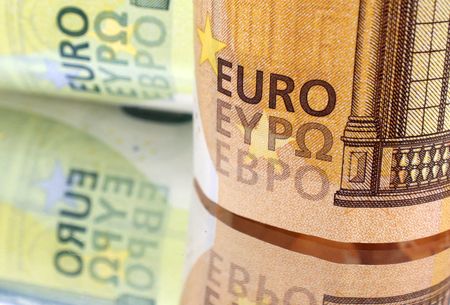By Yoruk Bahceli and Samuel Indyk
LONDON (Reuters) -An election win for Germany’s conservatives has eased concerns of political gridlock in Europe’s biggest economy, but failed to lift uncertainty around whether a new government can deliver fiscal reforms seen as vital to boosting sluggish growth.
Germany’s domestically-focused mid-cap stock index was poised for its biggest one-day jump since late 2023 on Monday and the euro briefly touched a one-month high, as the conservatives looked most likely to form a two-party coalition with the Social Democrats. This could make policymaking easier than for the outgoing three-way coalition.
“There is an immediate relief that there were no big nasty surprises in the election outcome, and a centrist-leaning government will persist and could even pivot more towards business and investment friendly policies,” said Charu Chanana, Saxo’s chief investment strategist.
Small- and mid-cap stocks led a share rally, rising 1.3% and 2.6%, respectively. The blue-chip DAX index, which is driven by international revenues, rose 0.9% to just shy of last week’s record high, outperforming Europe’s broad STOXX 600 index.
Yields on safe-haven German bonds, which move inversely to prices, inched higher.
ALL ABOUT THE DEBT BRAKE
Reflecting lingering investor caution, the euro – which briefly touched one-month highs above $1.05 – was last trading just 0.1% higher at around $1.0473.
The conservative Christian Democrats (CDU) under likely next chancellor Friedrich Merz now face tricky coalition talks and the prospect of an obstructive parliament after a surge in support for far-right and far-left parties.
The big question for markets is whether Germany can reform the “debt brake” that limits its structural budget deficit to just 0.35% of output.
Europe’s largest economy contracted for a second straight year in 2024, with critics blaming the debt brake for years of underinvestment.
The CDU, Social Democrats and Greens failed to gain the two-thirds parliamentary majority needed to change the rule or to launch special funds to raise spending outside of it. While including the Left Party would make up the numbers, it opposes raising defence spending, expected to be a major part of any fiscal boost.
Still, the AfD, which opposes debt brake reform, did not do better than expected, while the liberal Free Democrats, which also oppose it, failed to enter parliament.
Analysts say debt brake reform would support euro area stocks, which trade at sharp discounts to U.S. peers, and the euro, which dropped to around $1.01 earlier in February on U.S. tariff risks.
Pepperstone strategist Michael Brown said Monday’s euro pull back showed the market was realising policymaking and debt brake reform could remain complicated.
“Participants are hence paring back their expectations of significant fiscal stimulus being delivered in short order,” he said.
Others were more optimistic, however.
“The Left is in favour of reforming the debt brake so there’s still a case for fiscal reform or fiscal easing. That’s my reading,” said Barclays’ head of European equity strategy Emmanuel Cau, adding the election result was good news for stocks.
Investors expect only moderate reform to the debt brake, also as Merz has shown openness to only limited change.
Spending expectations have nonetheless grown in recent days as markets assess Europe’s capacity to find potentially hundreds of billions of euros to ramp up defence spending.
Shares of German defence stocks rose sharply on Monday with Bellwether Rheinmetall up nearly 4% to near a record high touched last week on hopes for a Ukraine ceasefire.
The additional yield Germany pays for longer-term borrowing over shorter-term debt remained near its highest since 2022 on Monday.
(Editing by Deepa Babington & Shri Navaratnam, Kirsten Donovan,)










